Washington DC | December 16th, 2022
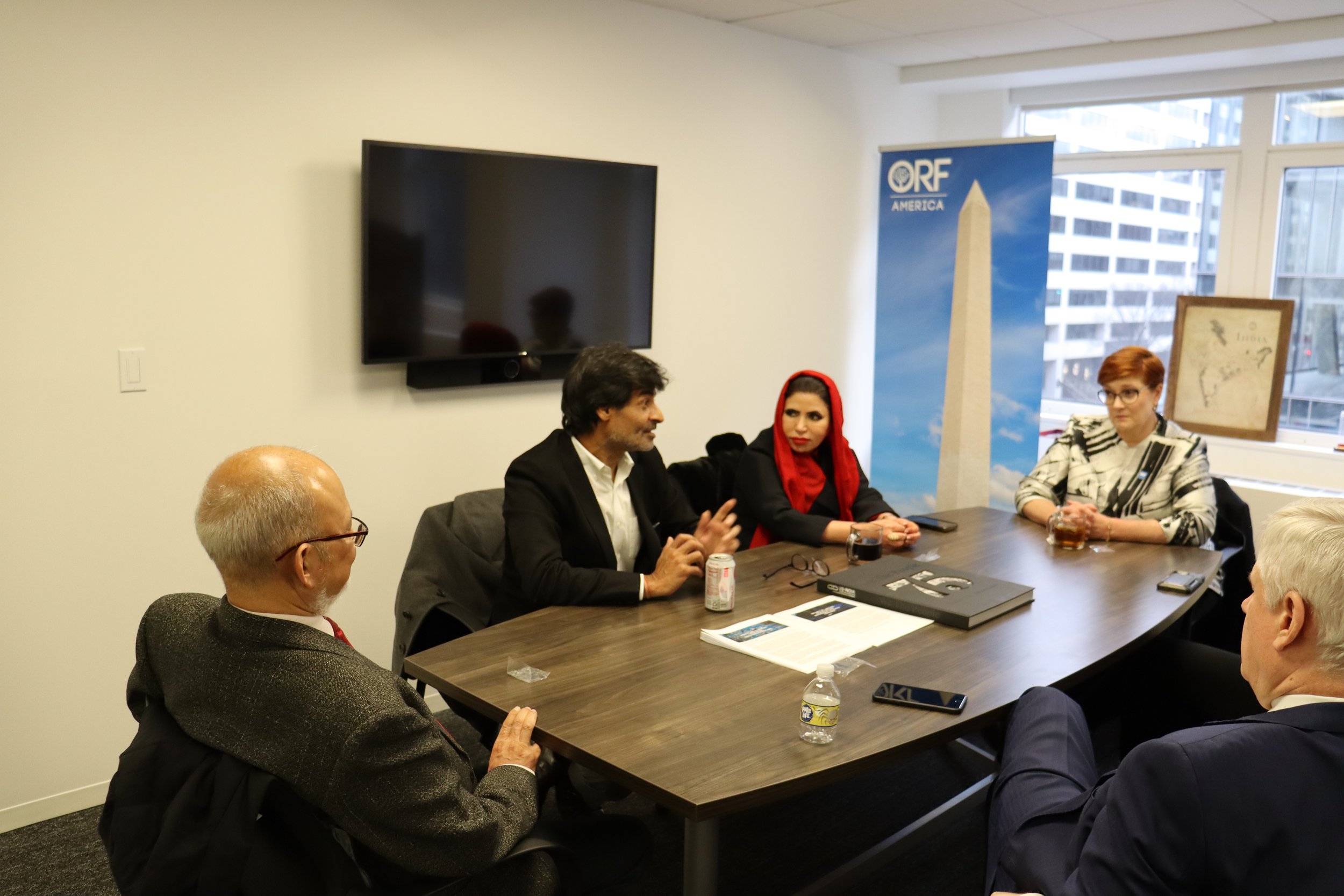
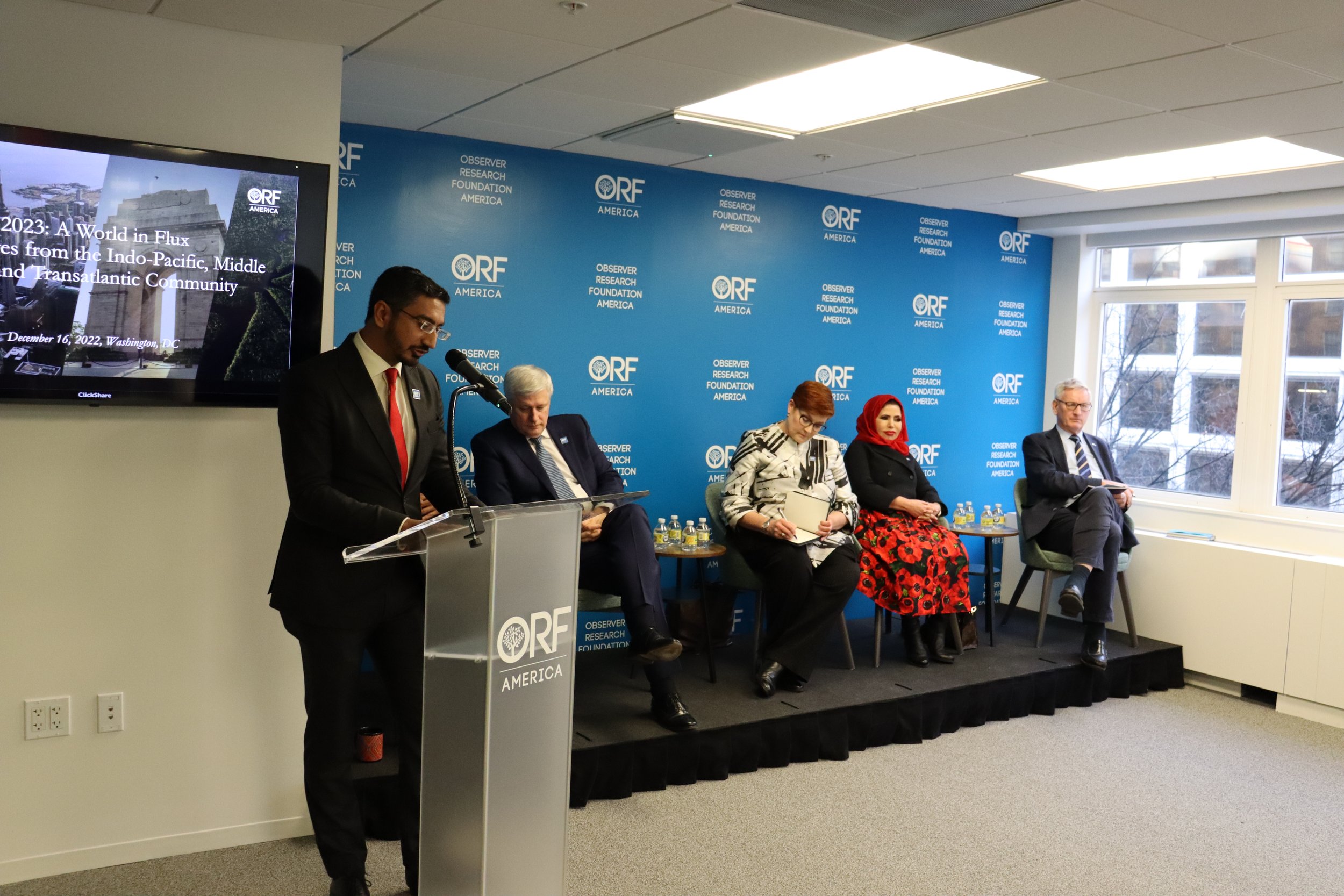
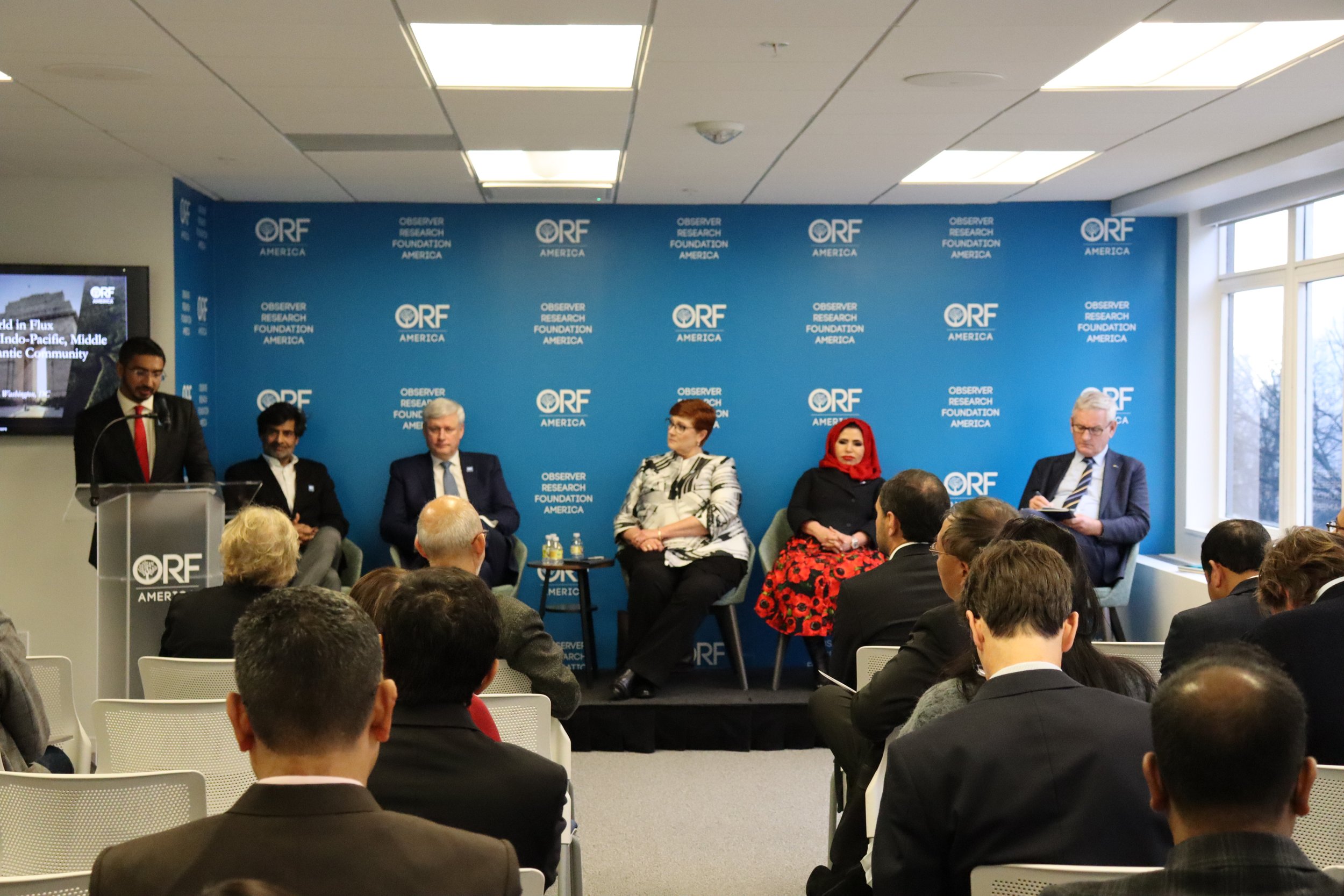
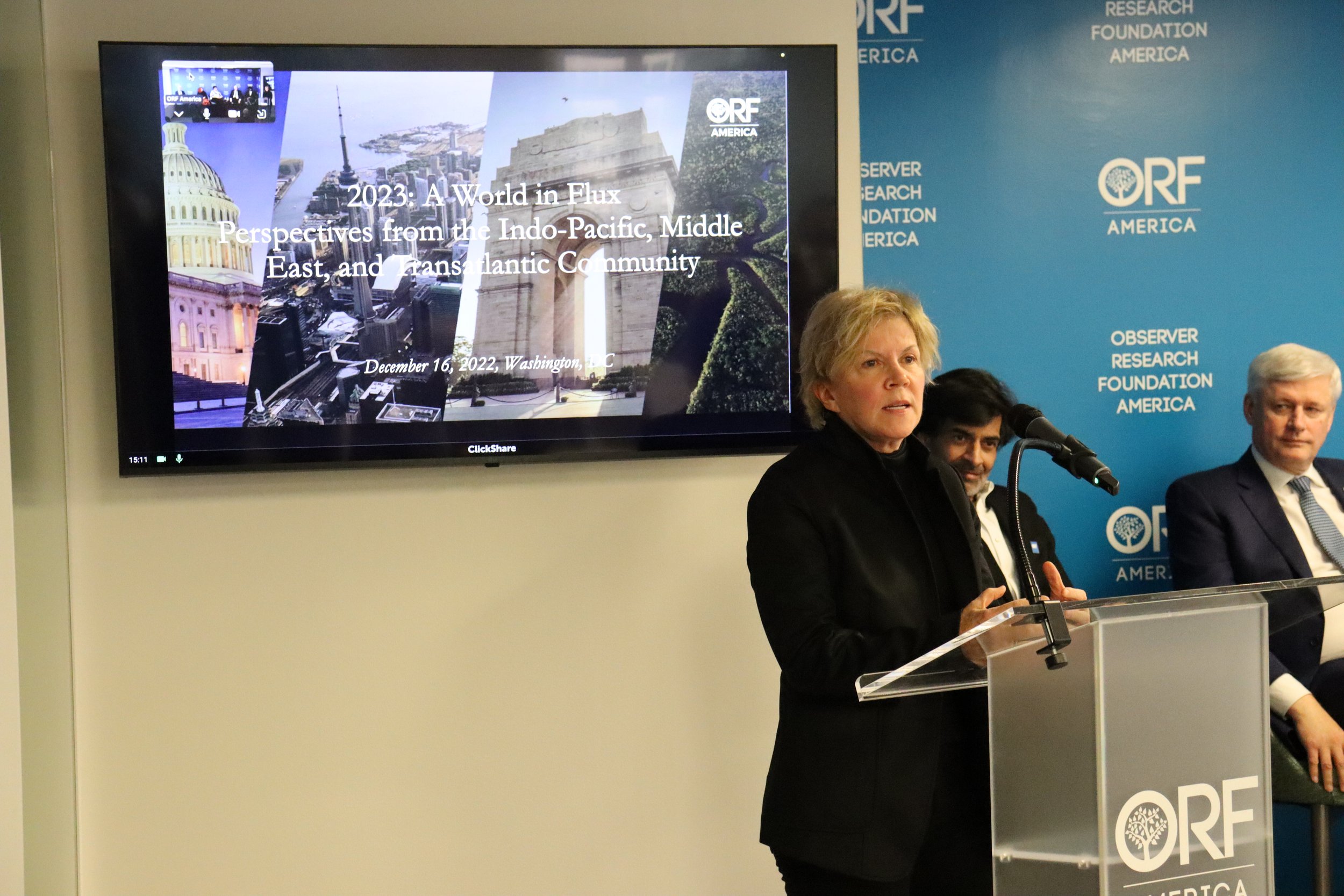
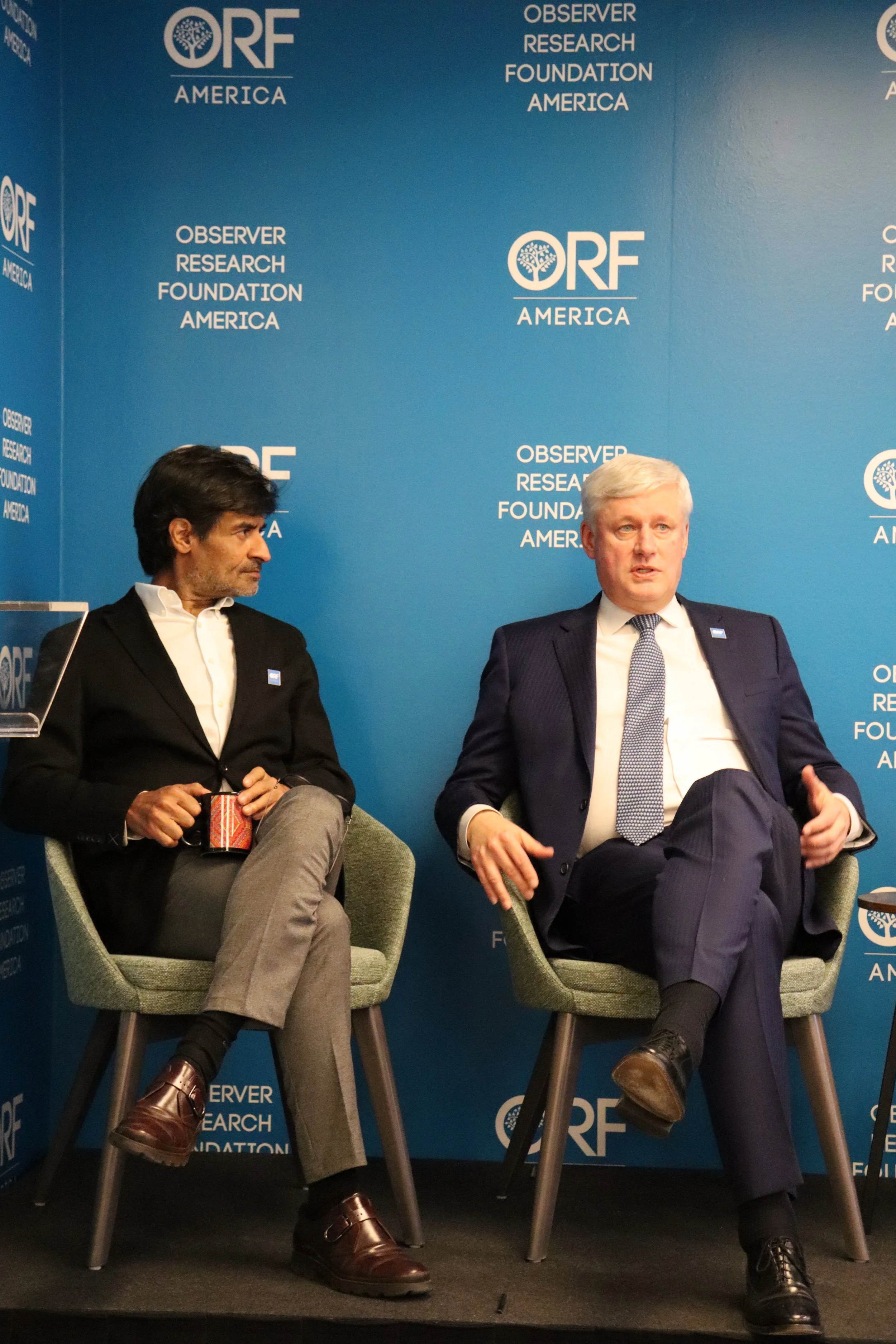
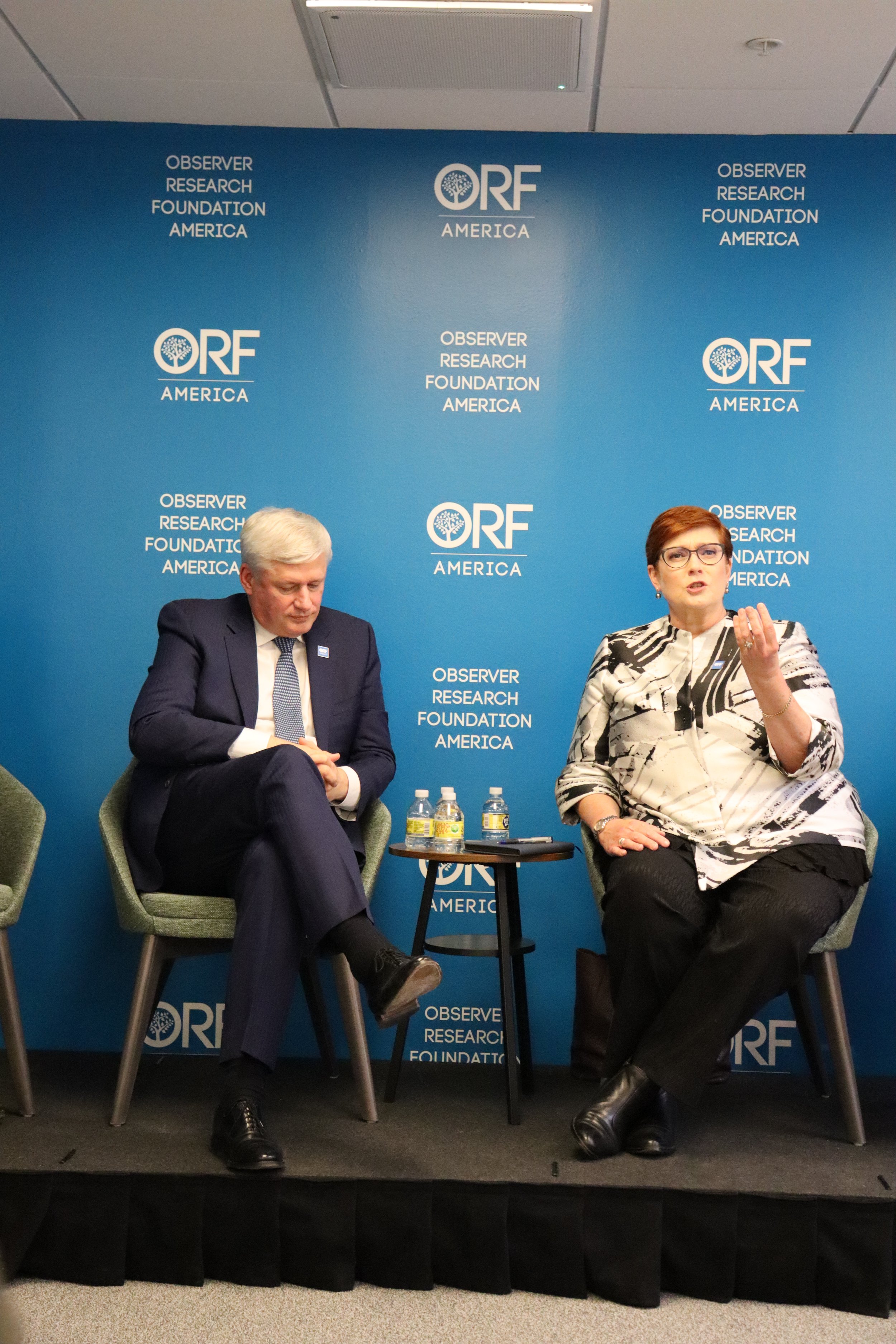
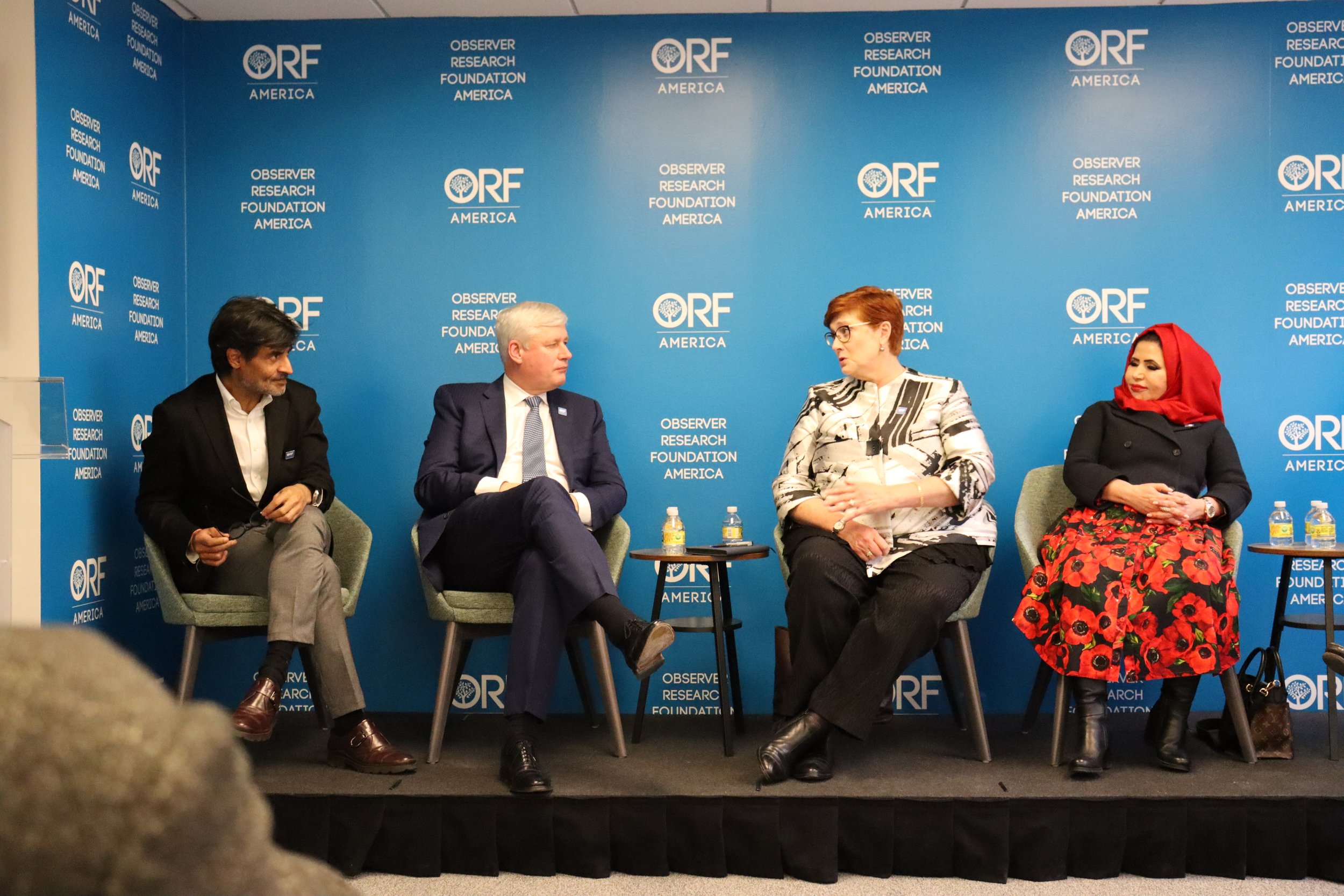
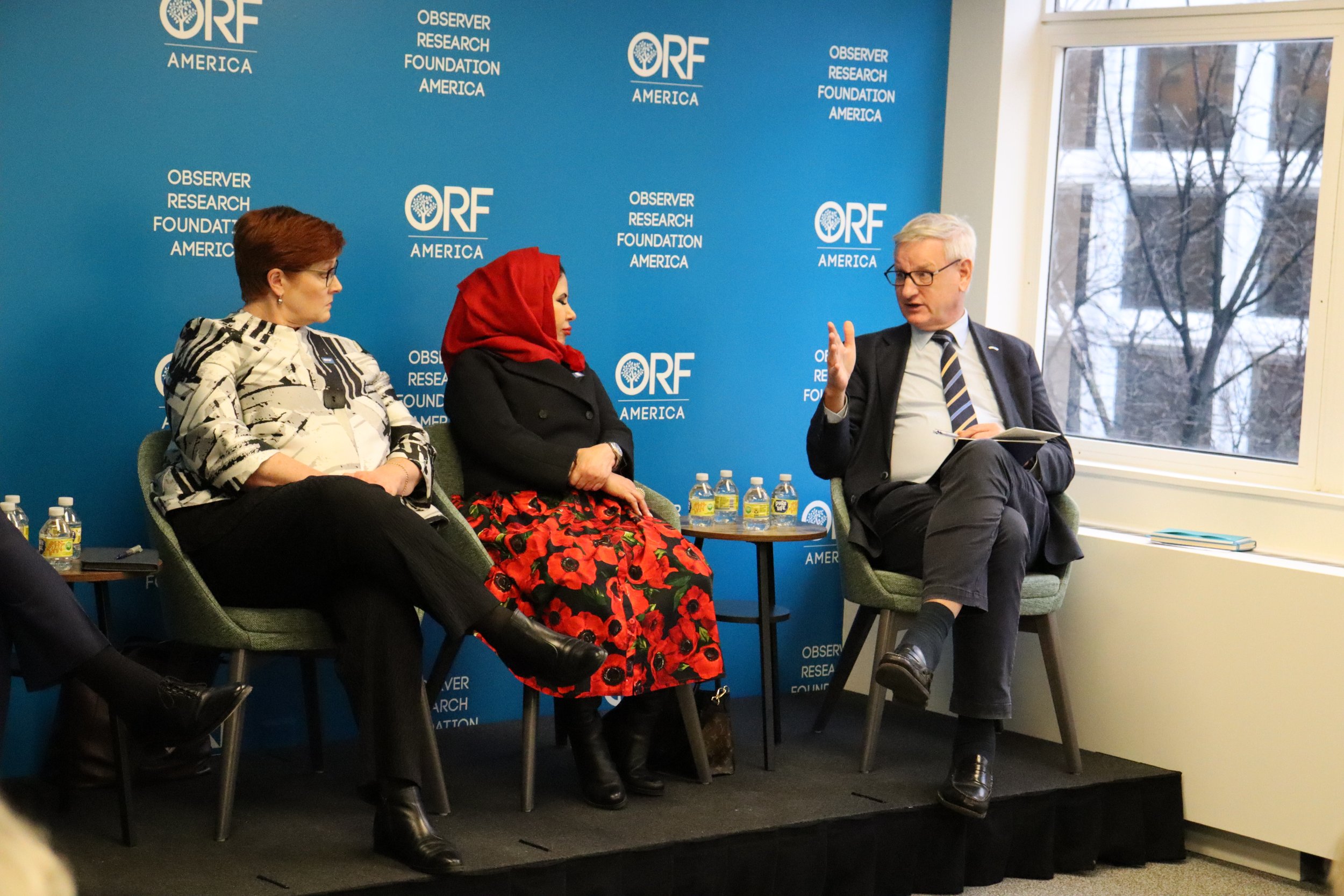
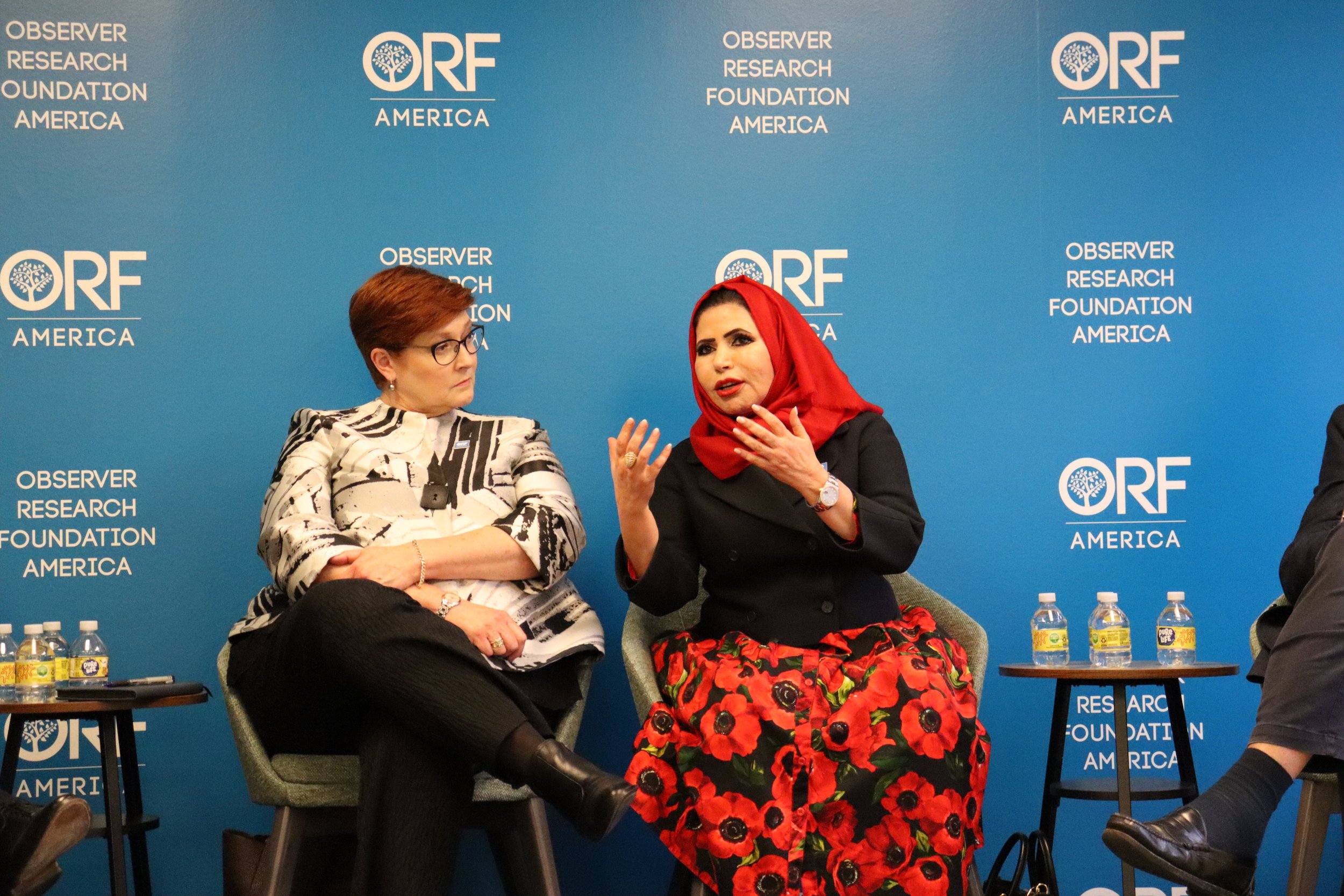
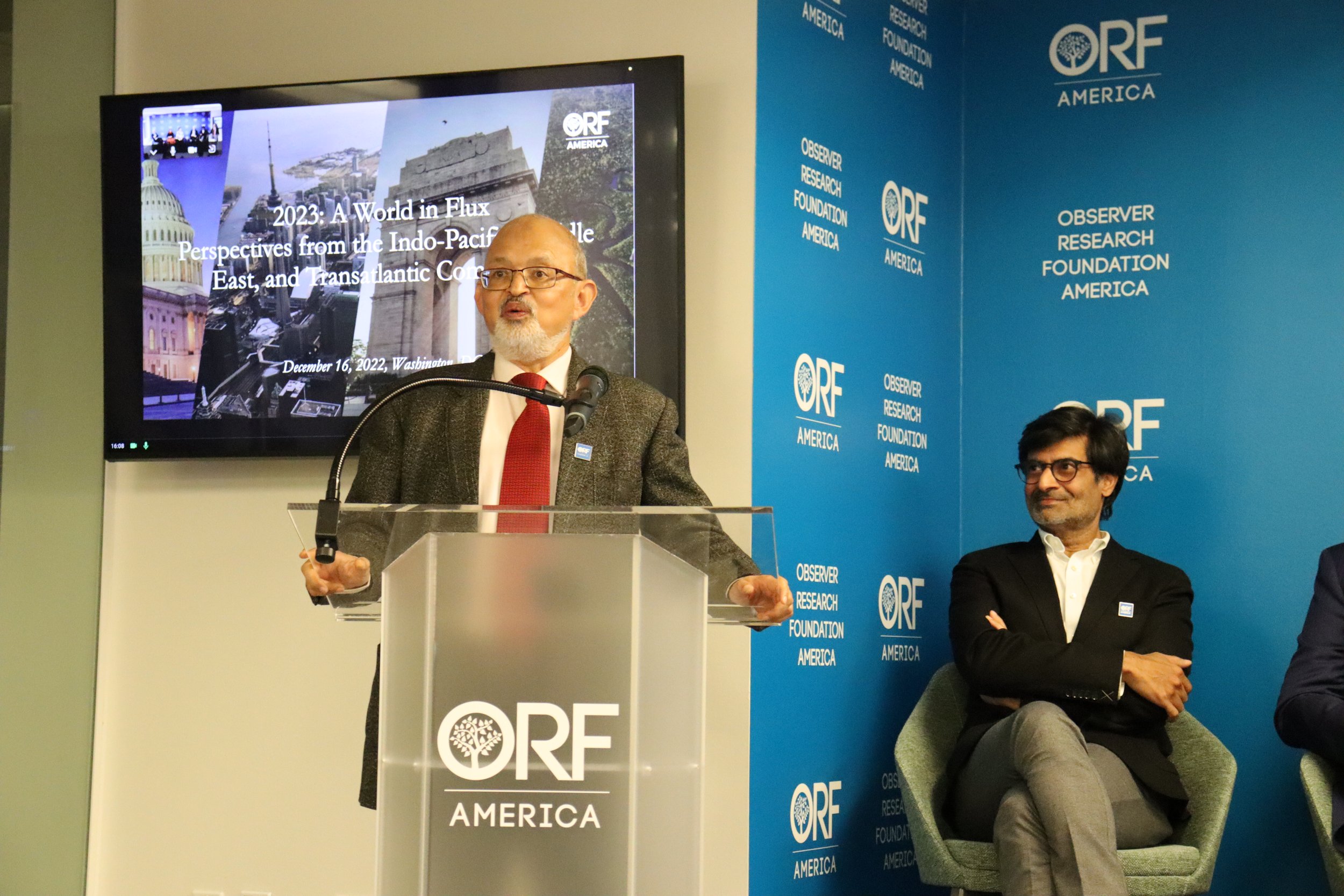
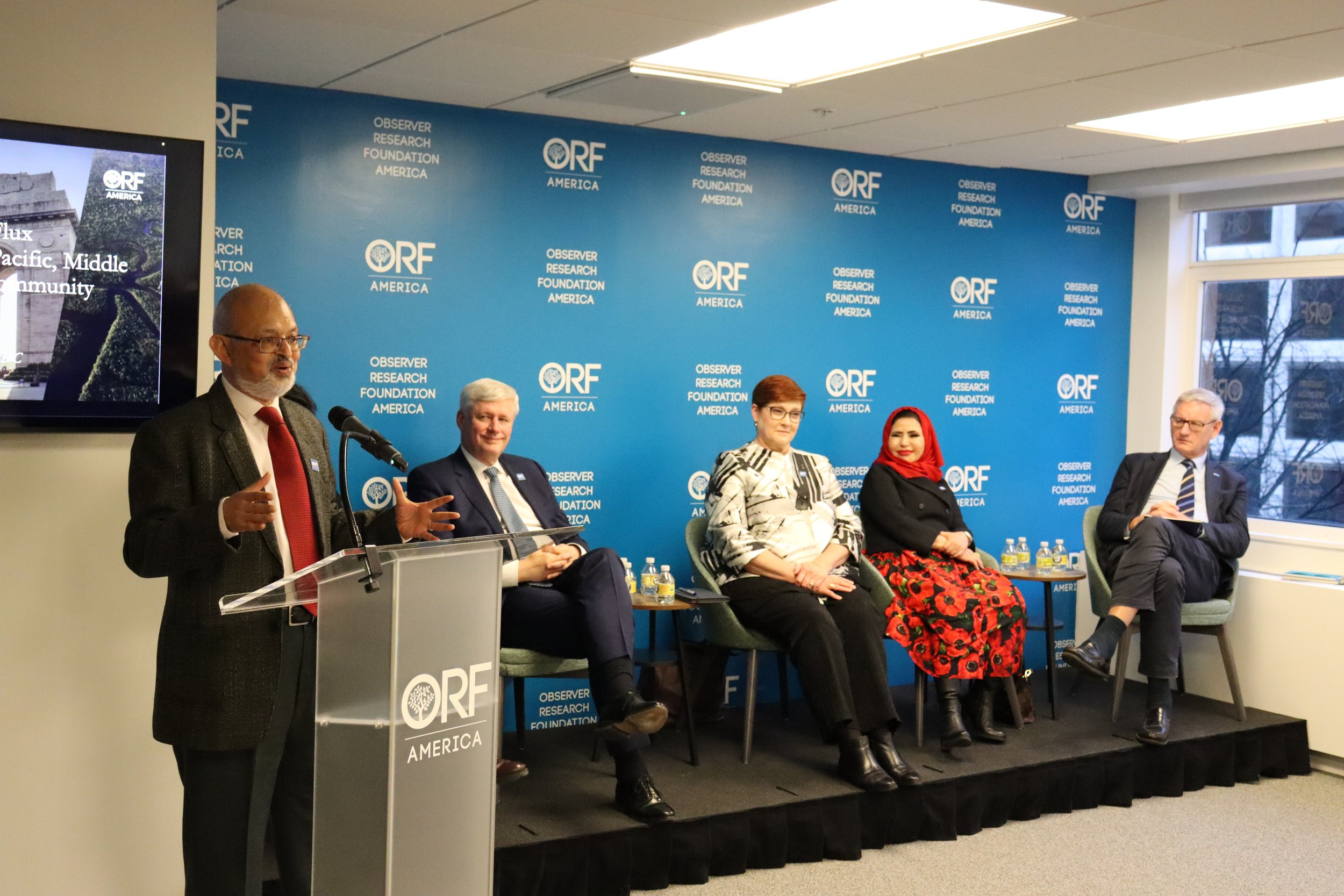
Background
2022 has been a turbulent year in international politics: the Russia-Ukraine War, China's 20th Party Congress, U.S. midterm elections, volatile energy and currency markets, and continuing disruptions caused by the Covid-19 pandemic have all contributed to the sense of uncertainty. What will the world look like in 2023, and what will it mean for the United States and its role in global affairs? To make sense of a “World in Flux”, ORF America hosted a panel discussion at its office in Washington DC, featuring prominent voices from Australia, Japan, Europe, India, and the UAE.
Discussion
Speakers highlighted the Russian invasion of Ukraine as exacerbating already existing political and economic shocks. Perhaps making it the most consequential geopolitical development of 2022. Thereafter, the discussion revolved around the big “strategic questions” that will animate the international community in 2023. For example, will the Ukraine conflict continue to be in the spotlight? Additionally, in a more competitive world, how will countries cooperate on common challenges like climate change and pandemics? How can the West listen and appreciate the concerns of the developing world or the “global south”? Is there potential for stronger cooperation between democracies in the context of a tighter Russia-China “no-limits” partnership? What is the future of the American alliance system and transatlantic unity?
Speakers
Ebtesam Al-Ketbi, President, Emirates Policy Centre
Carl Bildt, former Prime Minister and Foreign Minister, Sweden
Stephen Harper, former Prime Minister, Canada
Marise Payne, former Foreign Minister and Defense Minister, Australia
Samir Saran, President, Observer Research Foundation (moderator)

